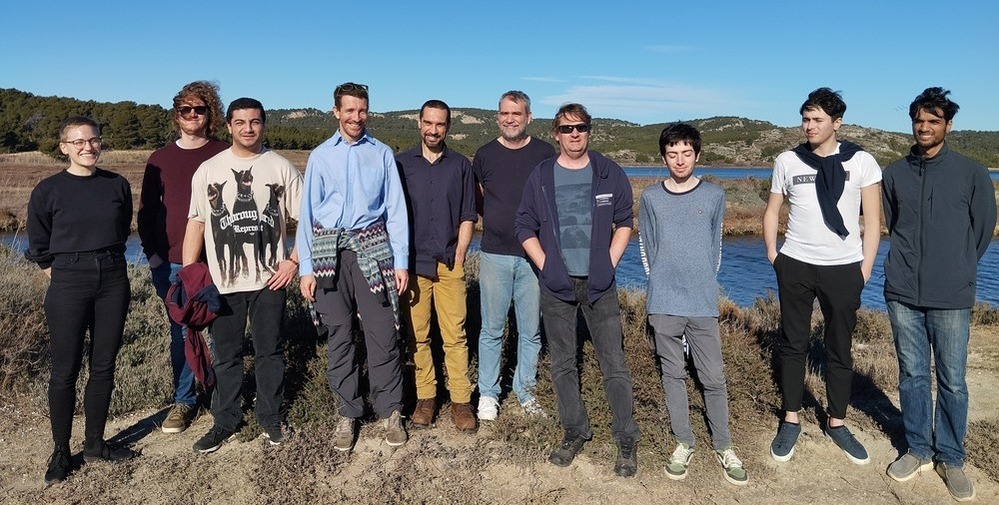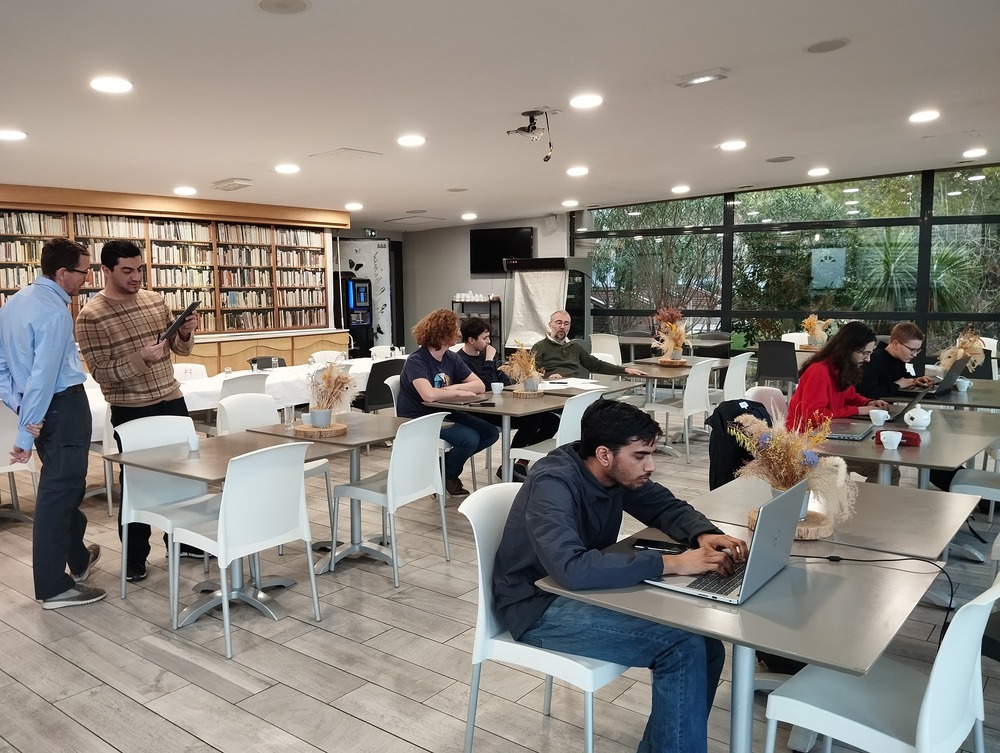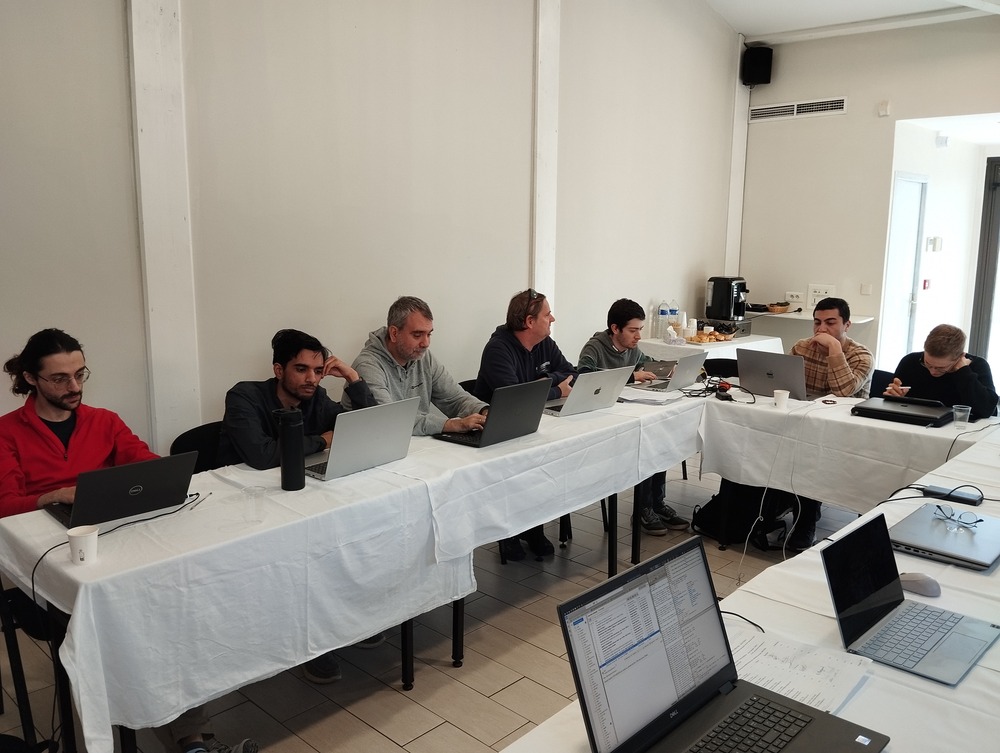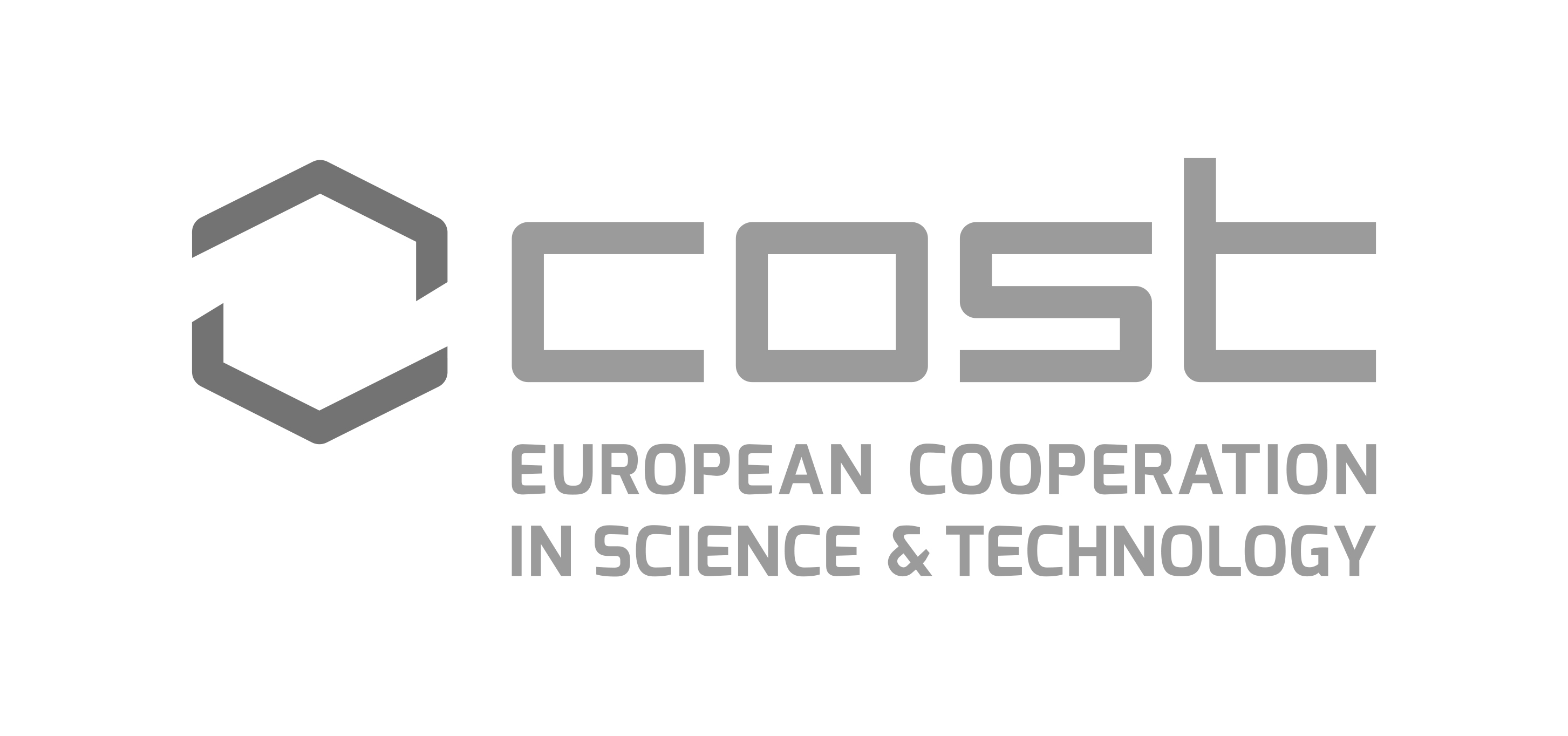Meeting on Dedukti and proof systems interoperability in Gruissan in January 2024

Organizer: Frédéric Blanqui
Date: 23-25 January 2024
Remark: the official dates of the meeting taken into account for reimbursements are from January 23 to January 25 (3 days). However, since most people will arrive on January 22 and leave on January 26, the program includes two optional work sessions on January 22 afternoon and January 26 morning for the people who will be there.
Venue: Hotel Phoebus, Boulevard de Planasse 11430 Gruissan, France
How to get there? Hotel Phoebus is 26 minutes away by bus from Narbonne train station, and 2h10 by public transport from Montpellier airport MPL. There are many direct trains from Paris Gare de Lyon to Narbonne: 08:26-12:46, 09:42-14:24, 11:46-16:13, 14:56-19:20, 16:56-21:20, 17:42-22:20. If many people arrive at the same time, we may organize a private shuttle.
Program: Discussing the encoding in Dedukti of logical features (universe polymorphism with impredicativity, type classes, etc.), working alone or in small groups on the development of tools for generating, handling or transforming Dedukti files, taking advantage of the participation of experts on Dedukti or other languages and tools, working on the translation of proofs from one system to another system, to make progress on EuroProofNet objectives and deliverables.
Application procedure: The number of participants is limited. If you want to be funded, check the eligibility rules and send a mail to Frédéric Blanqui with the following information and documents:
- URL of your homepage
- planned date and time of arrival
- planned date and time of departure
- cost of travel in euros with quote (screen capture)
- work plan: describe what you would like to do
Cost: Participants have to organize their travel by themselves. For accommodation and meals, they will have to pay to the hotel 30% in advance (that can be reimbursed in case of cancellation before January 14) and the remaining on site. See the reimbursement rules for more details. The daily allowance is fixed at 120 euros.
Participants (13):
-
Rishikesh Vaishnav Rish made progress with his translation project from Lean to Dedukti (lean2dk). He began by translating the prelude file of Lean standard library, and discovered the need for a reduction rule for subsingleton inductives that is not well-typed and requires further investigation. He then proceeded to debug and eliminate sources of non-left-linearity in his translation.
-
Bruno Barras, Thiago Felicissimo and Théo Winterhalter worked on a new formalism to extend Dedukti and Lambdapi with user-defined equational theories. The idea would be to cover theories such as those of universes (with max, 0 and successor) or interval variables in Cubical Type Theory. One of the biggest challenges seems to be the interaction between these new symbols that are identified up to theory and higher-order terms which may feature rewrite rules. We have thought of several criteria so that the resulting type theory remains well behaved, but more investigation needs to be done before we are ready to experiment with an implementation.
-
Aside from his work with Bruno Barras and Théo Winterhalter, Thiago Felicissimo worked on BiTTs, an implementation of a logical framework in the same family as Dedukti, but with support for customized bidirectional typing. In particular, he started making an output from hol2dk to his format in order to test the tool with bigger files.
-
Thomas Traversié worked on the transformation of higher-order classical proofs into intuitionistic proofs, and improved the implementation of this transformation on Dedukti and Lambdapi proofs. To test it, he worked on Frédéric Blanqui’s translator of HOL-Light proofs, so that it outputs proofs with explicit natural deduction rules.
-
Frédéric Blanqui worked on adding sharing in the Lambdapi output of hol2dk (PR88), fixed some bugs in hol2dk (PR89), provided explanations about Lambdapi and hol2dk, and discussed the certification of SMT proofs with Alessio and of LEO-III proofs with Melanie.
-
Abdelghani Alidra: Documenting the installation process of Dedukti and Lambdapi. Hands-on learning of the Lambdapi syntax and supportive theory. Discussing bugs and future evolutions of the Lambdapi Vscode plugin.
-
Gabriel Hondet worked Personoj, a translator from PVS to Lambdapi. Personj is now compatible with PVS8. The installation procedure of Personoj has been smoothened and robustified.
-
Alessio Coltellacci worked on the translation to Lambdapi of rewriting steps in Alethe proofs from SMT solvers. He added a meta-tactic
tryin Lambdapi to allow to apply different rewriting without blocking on failure since SMT solvers do not provide enough fine-grained proof for rewriting steps (PR1032). He discussed with Frédéric and Claudio the encoding of user declaredSort, and changing the structure of the proofs goals in Lambdapi necessary for supporting the meta-tacticrepeat. -
During this meeting, Nicolas Magaud initiated a collaboration with Filip Maric on the use of SAT/SMT solvers inside proof assistants. We started working on proving properties of spreads and packings of some small projective space geometry models, namely PG(3,2) and PG(3,3). Using a SAT encoding, we manage to prove results on the combinatorics of spreads and packings of PG(3,2) in Isabelle/HOL. We are currently porting this results by hand in Coq. In parallel, we successfully used the dedukti framework and isabelle_dedukti to translate the Isabelle/HOL theories into corresponding ones in Coq. The translation was quite fast and leads to checkable Coq proof scripts. The next step would be to enhance alignments so that the Coq output becomes more readable. Further work is planned to formally verify the correctness of the classification of spreads and packings of PG(3,3) in both Isabelle/HOL and Coq.
-
Claudio Sacerdoti Coen worked on a new implementation in Rust of a checker for Dedukti files. The checker differs from previous implementations because it is based on term graphs. On pure lambda-calculus, previous work by C. Sacerdoti Coen and colleagues established that conversion can be checked in time bi-linear in the size of the initial term and the number of beta-steps required to compute the normal forms.
-
Melanie Taprogge discussed the encoding of higher-order logic, simplification and inference rules in Lambdapi with Frédéric and Alessio, gained a deeper understanding of Lambdapi, experimented with the translation of proofs generated by the higher-order logic ATP Leo-III in preparation for a planned automated translation.
-
Bruno Barras has worked on the existing implementation of associative commutative (AC) symbols in Lambdapi. It is based on an AC-normalization procedure at term construction which has bad interactions with Bindlib (a higher-order syntax library). The main issue was fixed, but it uncovered another issue. The mutability of the term structure makes it difficult to enforce that terms are always in AC-normal form. Some hints for a workaround needs further investigations. He also worked on an alternative representation of terms in Lambdapi based on de Bruijn indices. The current implementation was improved by restricting the term interface to enforce the so-called locally-nameless invariant. This allowed further optimizations by reducing the number of situations where indice shifting is needed.
-
Filip Maric worked with Nicolas Magaud on verification of spreads and packings in projective geometry. We developed proofs in Isabelle/HOL and Coq that use available SAT and SMT solver support to efficiently show that enumerations of spreads and packings are complete. We explored the possibility of exporting these Isabelle/HOL proofs to Coq using Dedukti/Lambdapi (esp. isabelle_dedukti). At the current state, we managed to transfer proofs of the general theory of projective geometry and plan to improve this by better alignment. However, large proofs generated by SAT and SMT solvers take too much time and memory to export, while proofs based on evaluation (the eval tactic of Isabelle/HOL) do not generate valid proof terms and therefore cannot be exported.
Monday 22 January (optional, for people arriving the day before the meeting):
| 14:00-16:00 | work session 3 |
| 16:00-16:15 | coffee break |
| 16:15-18:15 | work session 4 |
| 18:15-19:30 | free time |
| 19:30-21:00 | dinner |
| 21:00-23:00 | work session 5 (optional) |
Tuesday 23 January:
| 08:00-08:30 | breakfast |
| 08:30-10:30 | work session 1 |
| 10:30-10:45 | coffee break |
| 10:45-12:45 | work session 2 |
| 12:45-14:00 | lunch |
| 14:00-16:00 | work session 3 |
| 16:00-16:15 | coffee break |
| 16:15-18:15 | work session 4 |
| 18:15-19:30 | free time |
| 19:30-21:00 | dinner |
| 21:00-23:00 | work session 5 (optional) |
Wednesday 24 January:
| 08:00-08:30 | breakfast |
| 08:30-10:30 | work session 1 |
| 10:30-10:45 | coffee break |
| 10:45-12:45 | work session 2 |
| 12:45-14:00 | lunch |
| 14:00-16:00 | work session 3 |
| 16:00-16:15 | coffee break |
| 16:15-18:15 | work session 4 |
| 18:15-19:30 | free time |
| 19:30-21:00 | dinner |
| 21:00-23:00 | work session 5 (optional) |
Thursday 25 January:
| 08:00-08:30 | breakfast |
| 08:30-10:30 | work session 1 |
| 10:30-10:45 | coffee break |
| 10:45-12:45 | work session 2 |
| 12:45-14:00 | lunch |
| 14:00-16:00 | work session 3 |
| 16:00-16:15 | coffee break |
| 16:15-18:15 | work session 4 |
| 18:15-19:30 | free time |
| 19:30-21:00 | dinner |
| 21:00-23:00 | work session 5 (optional) |
Friday 26 January (optional, for people leaving after the meeting):
| 08:00-08:30 | breakfast |
| 08:30-10:30 | work session 1 |
| 10:30-10:45 | coffee break |
| 10:45-12:45 | work session 2 |
| 12:45-14:00 | lunch |



